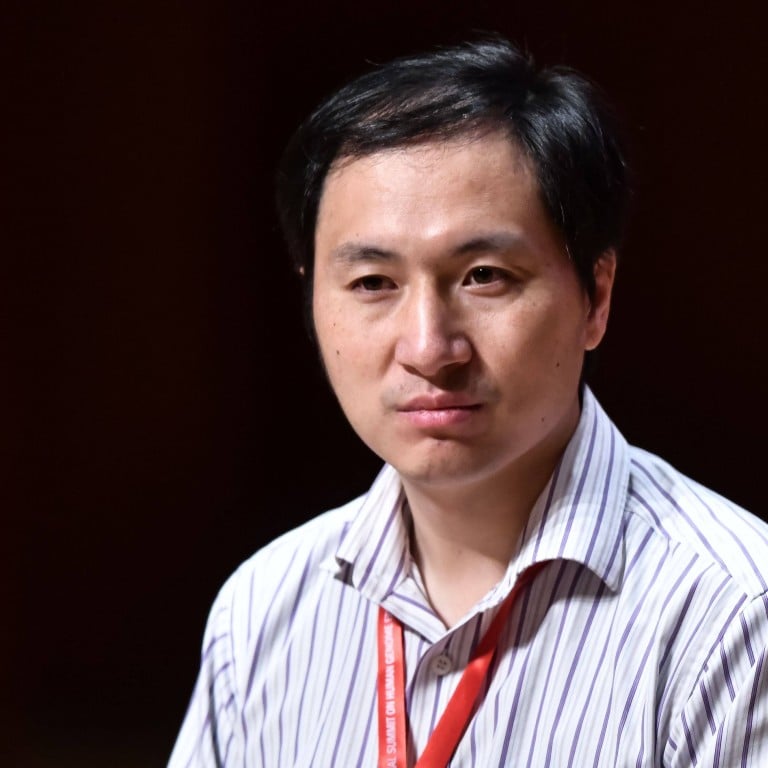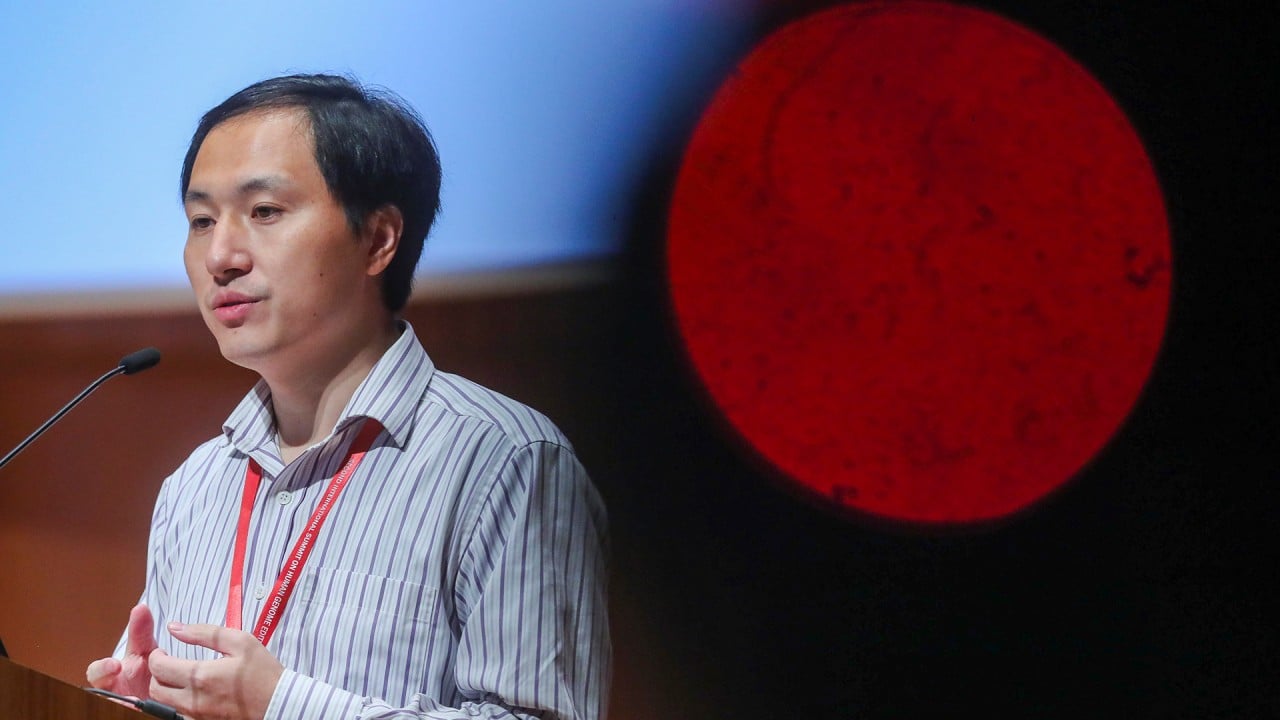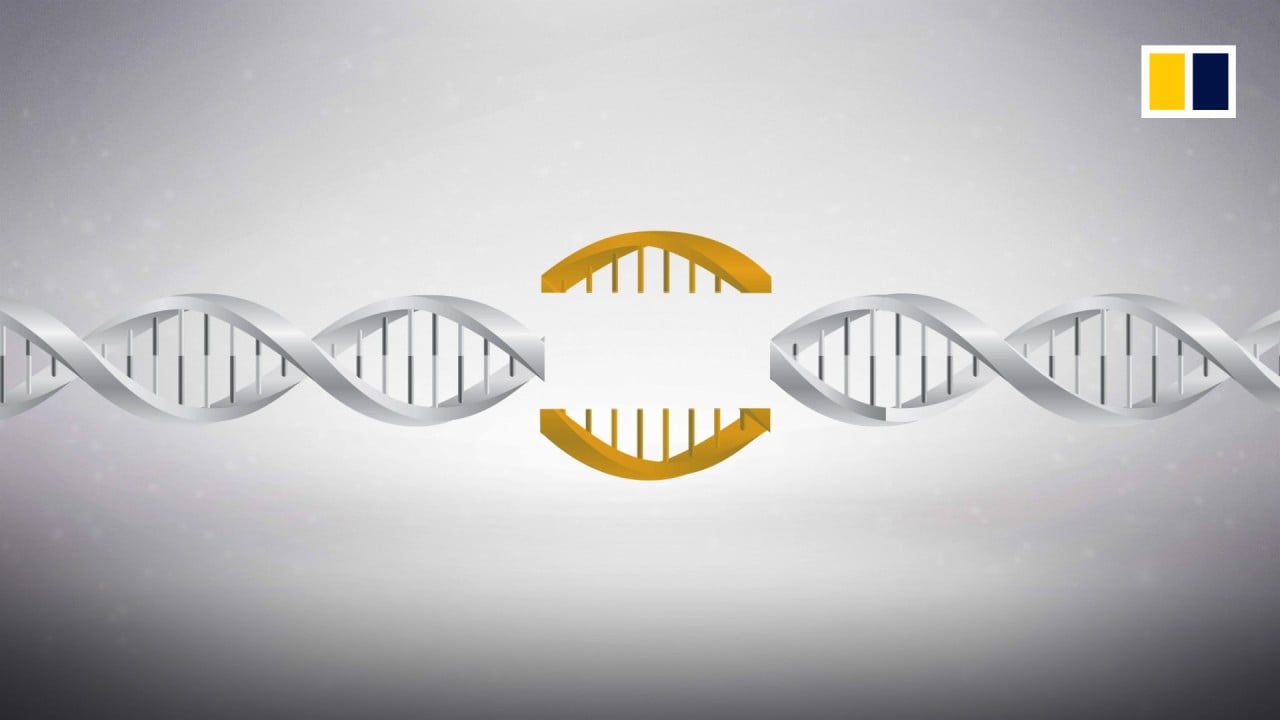
Exclusive | ‘Respect them,’ says He Jiankui, creator of world’s first gene-edited humans
- Scientists still question ethics of an experiment that the scientist went to jail for
- ‘I did it too quickly,’ says He, who now hopes to develop therapies for inherited diseases
“They have a normal, peaceful and undisturbed life. This is their wish and we should respect them,” He told the South China Morning Post in an interview on Friday.
He said he did not want to see the children being disturbed too much for the purpose of scientific research, adding that “the happiness of the children and their families should come first”.
When asked if he worried about the children’s future, He said his feeling was like the anticipation and worry that every father would have for the future of his children.
“You will have high expectations of them, but you also have huge unease,” he said.
In an unpublished study by He and other authors on the human experiment, they claimed the twin girls’ CCR5 genes were “edited successfully” and were expected to confer either complete or partial HIV resistance.
Gene editing for human reproduction is ‘irresponsible’, says UN panel
“The team didn’t actually reproduce the known mutation. Rather, they created new mutations, which might lead to HIV resistance but might not,” the report said.
“After the age of 18, the children will decide whether to do medical follow-ups for their individual needs. We committed to doing this for their lifetimes,” he said.
He and his team said they had committed to buying extra health insurance for the children in addition to public health insurance. But because their births became known, no insurance company wanted to be involved.
As an alternative plan, He now wants to set up a charitable foundation to raise money and cover health-related expenses for the three children.
He paid a heavy price for his experiments and was released from prison in April 2022 after serving a three-year sentence for illegal medical practices.
“I did it too quickly,” he said, adding that he learned a lot and changed a lot over the past four years.
Chinese gene-edited babies scientist seeks funding for DNA synthesiser
He was asked if he would use a different approach if he ever had a similar opportunity.
“The question is too complex and I do not yet have an answer,” he replied.
He said he planned to put his thoughts in an article and share it with the international scientific community when the time was appropriate.
In the meantime, He has set up a new laboratory in Beijing to work on affordable gene therapies for rare genetic diseases such as Duchenne muscular dystrophy – a deadly condition that mainly affects teenage boys and young men. He also plans to register a not-for-profit research organisation called the Beijing Institute for Rare Disease Research.
“I have a long-term vision, which is that each of us should be free from inherited diseases.”



